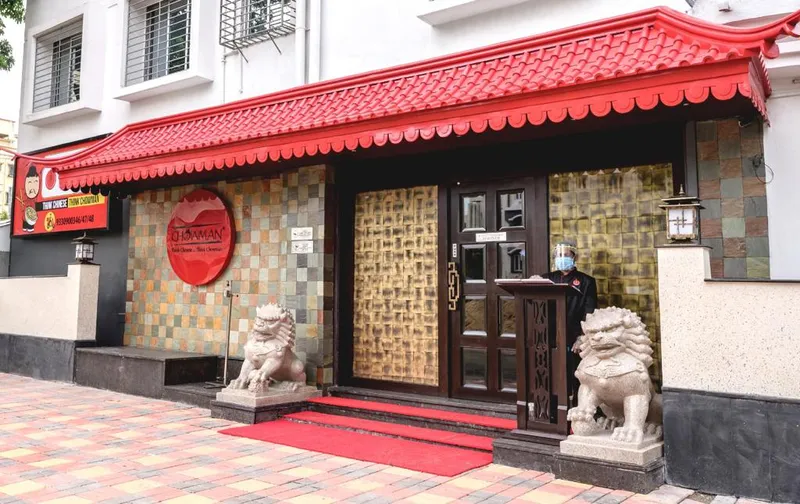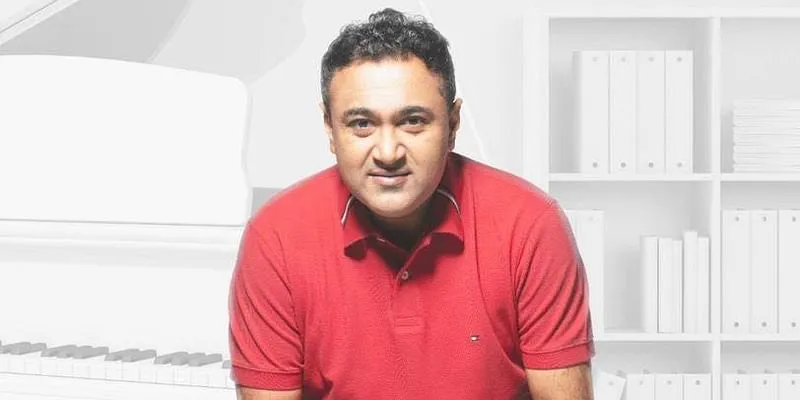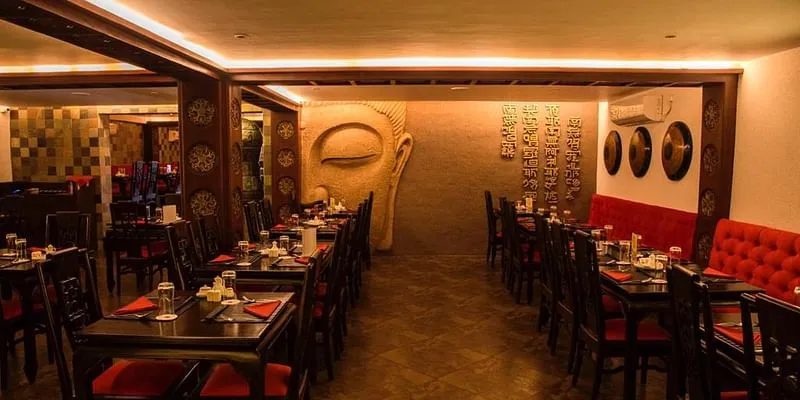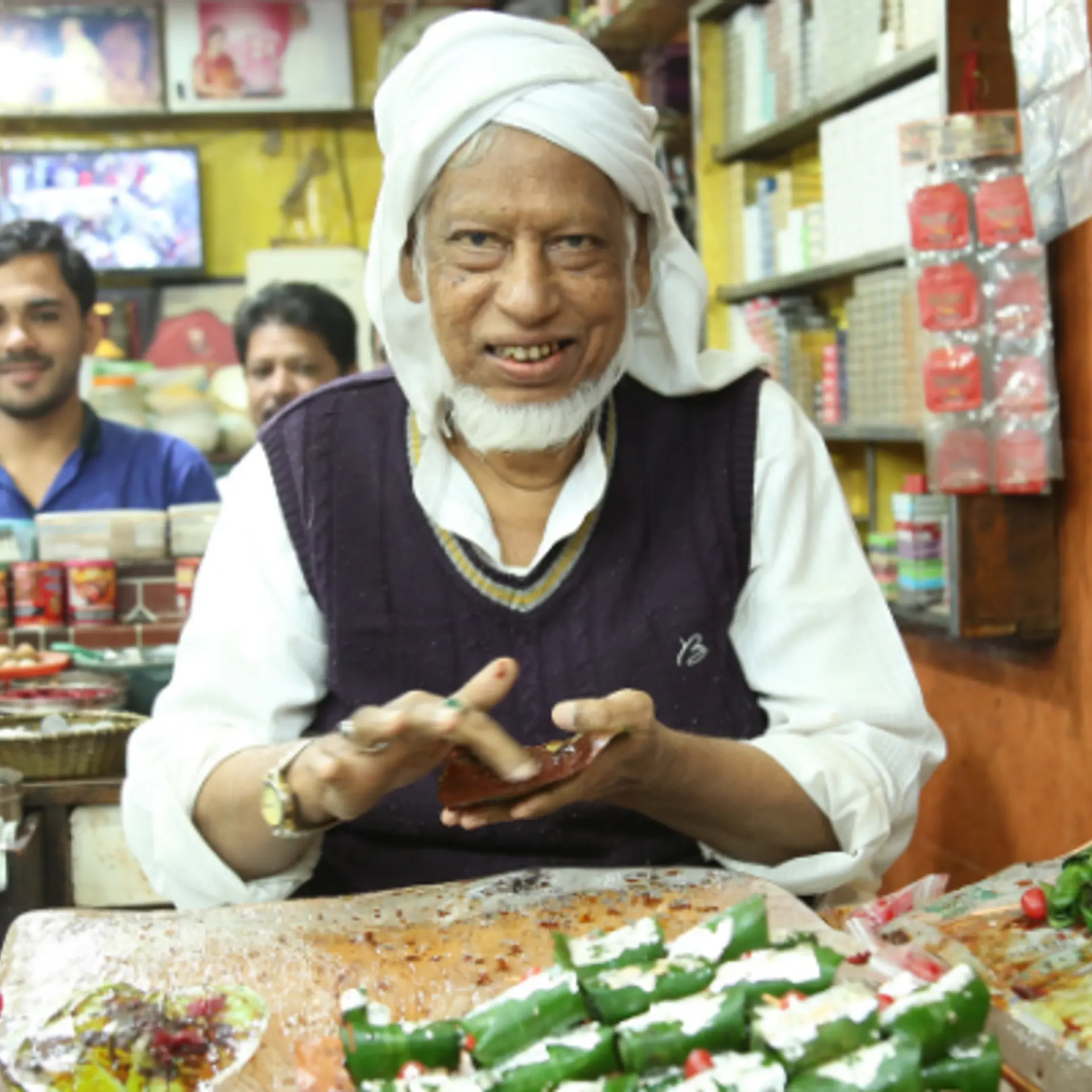Kolkata’s Chowman secret sauce: How to open a Chinese food restaurant and stand out in the crowd
Chowman has grown from one outlet in 2010 to 22 of them, 18 in Kolkata and four in Bangalore, in a span of 11 years. Its founder Debaditya Chaudhury shares his success secrets.
If you have spent a considerable amount of time in Kolkata (earlier Calcutta) or are living there, you are already in love with Chinese food. I can bet my rupee on that.
There is not a single Calcuttan who dislikes Chinese food. In fact, the first-ever Chinese restaurant to open in India was in Calcutta about a century ago. Named Eau Chew, the restaurant was started in 1920 by a Chinese immigrant essentially as a tiffin place for other Chinese immigrants arriving in Calcutta.
The trend quickly caught on with similar eateries opening up in the city attracting the local population. The unique Indian Chinese cuisine was an instant hit and has gone on to become a popular choice in almost every part of India today.
There are 70 lakh restaurants in India in the organised category and 2.3 crores in the unorganised one (as per the Federation of Hotel and Restaurant Association of India), it would be fair to say that most serve Indian Chinese even if they are not standalone Chinese restaurants.

One of the Chowman outlets in Kolkata.
In Kolkata, there are about 200 Chinese restaurants, and perhaps innumerable street vendors stirring up Hakka noodles and chili chicken. In such a scenario, how does someone who wants to start a Chinese restaurant in Kolkata strategise for success?
Thirty-nine-year-old Debaditya Chaudhury, who opened his first Chinese restaurant, , in Kolkata in 2010, asked himself the same question. How was he going to stand out from the crowd?
“Kolkata has the most densely-populated Chinese restaurants. My plan was something else. It’s based on Alfred Ford’s (great-grandson of Henry Ford, Founder of the Ford Motor Company) philosophy of democratising cars for everyone. Similarly, I wanted to democratise fine dining. I wanted to open small outlets of Chowman with high-end decor, crockery, and cutlery like the ones in plush restaurants, and food that is on par with any five-star hotel at reasonable and affordable pricing,” he tells me over a Zoom call from Kolkata.
This was how he initially advertised his brand: ‘Five-star quality food, at a one-star price’. “From the very first day, we had a great response. So much so that I could open a second place within four months of the first,” he adds.
A first-generation entrepreneur, Debaditya put in his savings to start his first outlet. Today, he has 22 of them, 18 in Kolkata and four in Bangalore. Before we elaborate on his business plan that helped him make a place for himself in the hall of fame of Chinese restaurants, there is an interesting backstory to how he entered the food business.
Wild & passionate
Debaditya started out as a musician after his MBA in marketing. He continues to play in a popular Bangla rock band called ‘Lakkhichara’ (loosely translated as wild and passionate). He would travel all over the world – “wherever there was a Bengali community” – with the band, playing the keyboard and also managing the band.
“We have performed in the UK, the US, and the UAE. Being a foodie, I would note down the names of the must-eat places wherever we went and eat there.
In 2006, when the FM radio came to Calcutta, he was asked to host a show, called ‘Khete Khete Shono’ (listen while you eat), on one of the FM channels. The content of the show was to cover all the unusual eateries across the city. The show became popular. “However, I always wanted to be a food entrepreneur, and I realised it was time I took that leap,” he says.
Opening a Chinese restaurant was a natural choice. But the business model to make it worth the while needed some planning.

Debaditya Chaudhury
Debaditya did two things differently, which are paying off now especially in these times of lockdowns. One, he built his own delivery team, and two, he started cloud kitchens even before the concept became popular.
As with most things, these two ideas came about accidentally. “My first outlet was a small one. About 350 sq feet restaurant. The kitchen was also small. To do justice to people who were coming to dine in and those that wanted to order, we set up a full-fledged kitchen behind the restaurant to serve only the delivery orders,” he says, adding that he did not know the terminology cloud kitchen at that time.
“When and launched, Deepinder Goyal (Zomato founder) personally negotiated with me and I was the first guy to sign up on the platform from the east,” he adds.
Today, he has a delivery fleet of 125 people in Kolkata, besides being listed on the food delivery apps. In Bangalore, there are approximately 60 delivery personnel. “And they are all on direct payrolls, including all the benefits, bonus, plus we have also incentivised them for delivery. We have retained them successfully. For them, it is a stable job,” says Debaditya.
Cloud kitchen success
Debaditya was confident of the cloud kitchen business then, and more so now. Before the pandemic, his dine-in business and delivery were at par. “After the first wave of lockdowns, when restaurants started opening up, we had 80 percent delivery and 20 percent dine-ins,” he says.
At present, his business records 30 percent dine-ins and the delivery business has taken the front seat, as he says.
When it comes to the success of a cloud kitchen, the secret is location, location, location. That’s the key, Debaditya says.
In Bangalore, besides four outlets, he is planning another four cloud kitchens. For example, to cater to a premium area like Indiranagar, Chowman is opening a cloud kitchen in CV Raman Nagar, where rents are relatively lower.
“The boom of cloud kitchens is just the beginning. In the next five years, there will only be cloud kitchens,” he states.
However, as for his own business, he is confident that he will have both dine-in and cloud kitchens. He recently opened an outlet in Indiranagar in Bangalore.
“Surely, there is more investment needed in a dine-in place. Cloud kitchens give a better return on investments. But if you ask me, you should have dine-ins for brand presence. Otherwise, there is no brand connect,” he says.
Bangalore is the second city after Kolkata where Chowman has its presence. How does a local brand establish its presence in a new city? For Chowman, word of mouth has worked best.
“In all parts of India, there is a Bengali population, which is our chief customer target. There’s social media that is giving us visibility. And of course, the food. Our food is our mascot,” he says.
Business mind
Starting with Rs 10 lakh from his savings, Debaditya says they continue to be self-funded. “We roll back our profits into the business.”
According to the company’s ROC filings, revenue for the year ended March 31, 2020, rose 24.4 percent to Rs 27.96 crore from Rs 22.47 crore the year earlier, and its profits went up nearly 39 percent from Rs 80 lakh to Rs 1.11 crore in the same period.
“Compared to pre-pandemic, our revenues have gone up, but this is mostly in the delivery business. But we are confident that we will catch up on the dine-in business too, depending on how we handle the pandemic situation,” says Debaditya.
Another business secret is that all his vendors have been with the company since day one. And the advantage for him is that they provide a month’s credit, which no one usually does in the hospitality industry.
The other aspect of having these long-standing relationships with vendors is that they also grow along with the brand. “For example, we still buy chicken from the same vendor when we opened our first restaurant. Today, he has his own house and a four-wheeler that is used to deliver to all my outlets. We are both growing.”

Interiors of a Chowman outlet in Kolkata.
However, his biggest challenge remains retaining manpower. “There are bigger groups offering more salary and benefits, but most of my old employees are still with me. In this industry, the attrition rate is very high. But at Chowman, we have tried to stem it by having a different kind of work culture,” says Debaditya.
That culture includes sharing regular internal newsletters with all employees along with employee engagement activities.
“I know money is important but sometimes more than that you need a good workplace where you get a scope to learn and grow. For example, we have a person, who came as a utility guy, and has gone on to become a trainee chef. People come from villages, have worked up the ladder, and are now running outlets. There are delivery bikers who are now restaurant managers, or cashiers who are now IT heads.”
In all the marketing noise of brands, especially in the food business, Debaditya says the only way he functions is by keeping his head down and focusing.
“I am very systematic. I wake up at 5 am and go to bed by 10 pm. I do not attend late-night parties. I do not take calls after 10 pm. My plans are fixed and I am very rigid about them,” he reveals.
And though he says he gets a lot of offers from investors ready to put money into the business, he is not planning to take any funding right now. “Our business is manpower driven, so even if I get Rs 10-15 crore, how am I going to open so many restaurants and get so much manpower. And even if I open, we may have to compromise on the quality of the food.”
In his little black book, his plans to grow his business go like this: Early 2022 expansion in Bangalore, after April 2022, Hyderabad, then 2023 in Mumbai, 2024 in Pune, and 2025 in Delhi. “That’s my plan. I’ll take baby steps and let’s see.”
Recently, Debaditya received an entrepreneurship award ‘Jewel of Bengal’ from a trade body, and posted an update on his Facebook wall commenting on what he hears from people frequently: “Bangalira bebsha korte pare na…(Bengalis do not know how to run a business)”... and goes on to bust that myth.
“I always wanted to do something different. To live my life with passion,” he says. Debaditya comes from a middle-class family and says he understands the value of money. “I also used to be the band manager so that gave me a lot of entrepreneurial skills.” Besides his mantra for sticking to his plans and moving slowly but surely, that perhaps best sums his entrepreneurial journey.
Edited by Teja Lele







